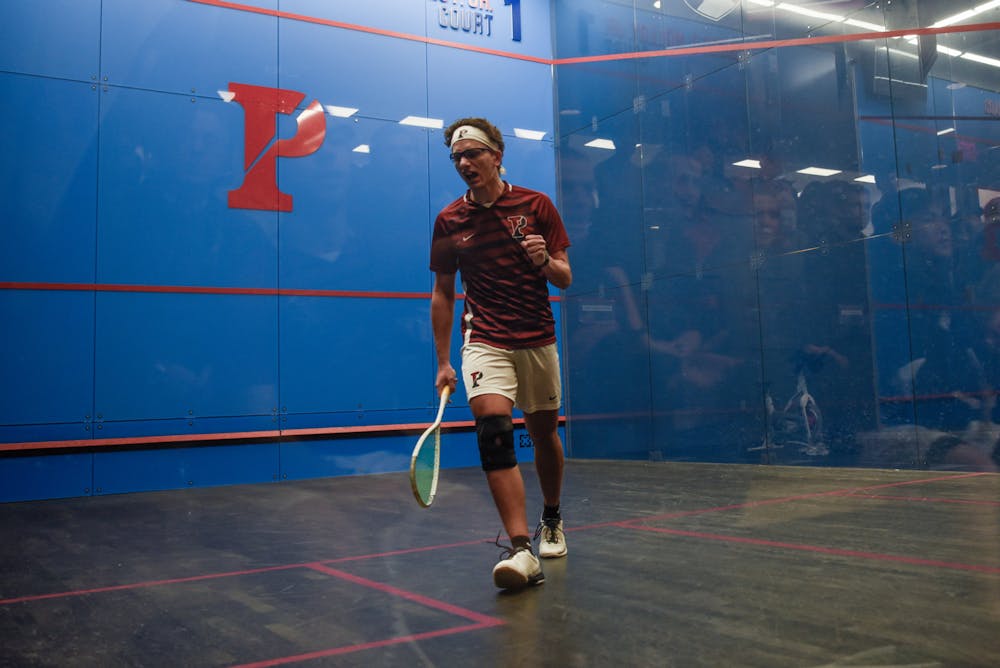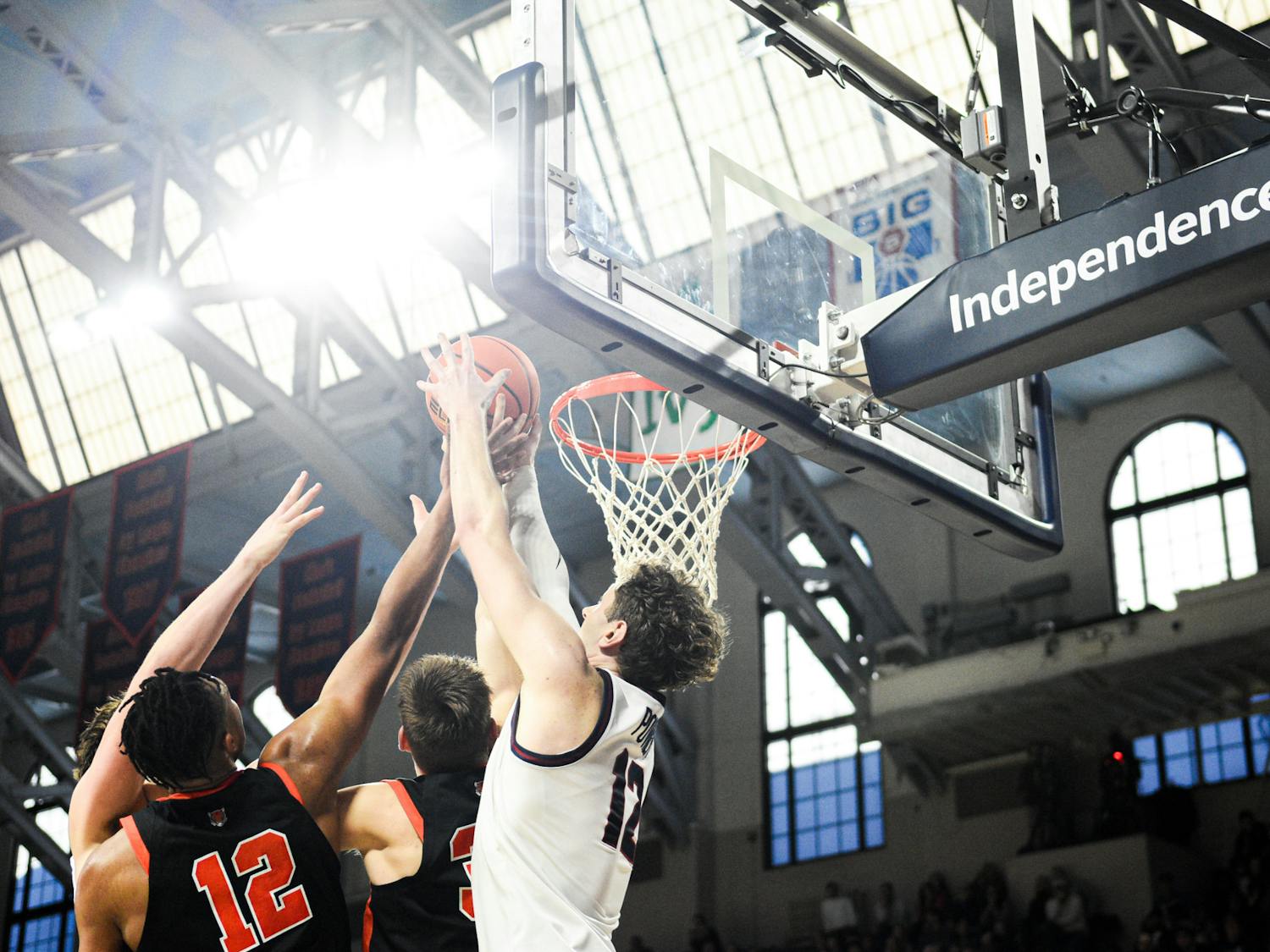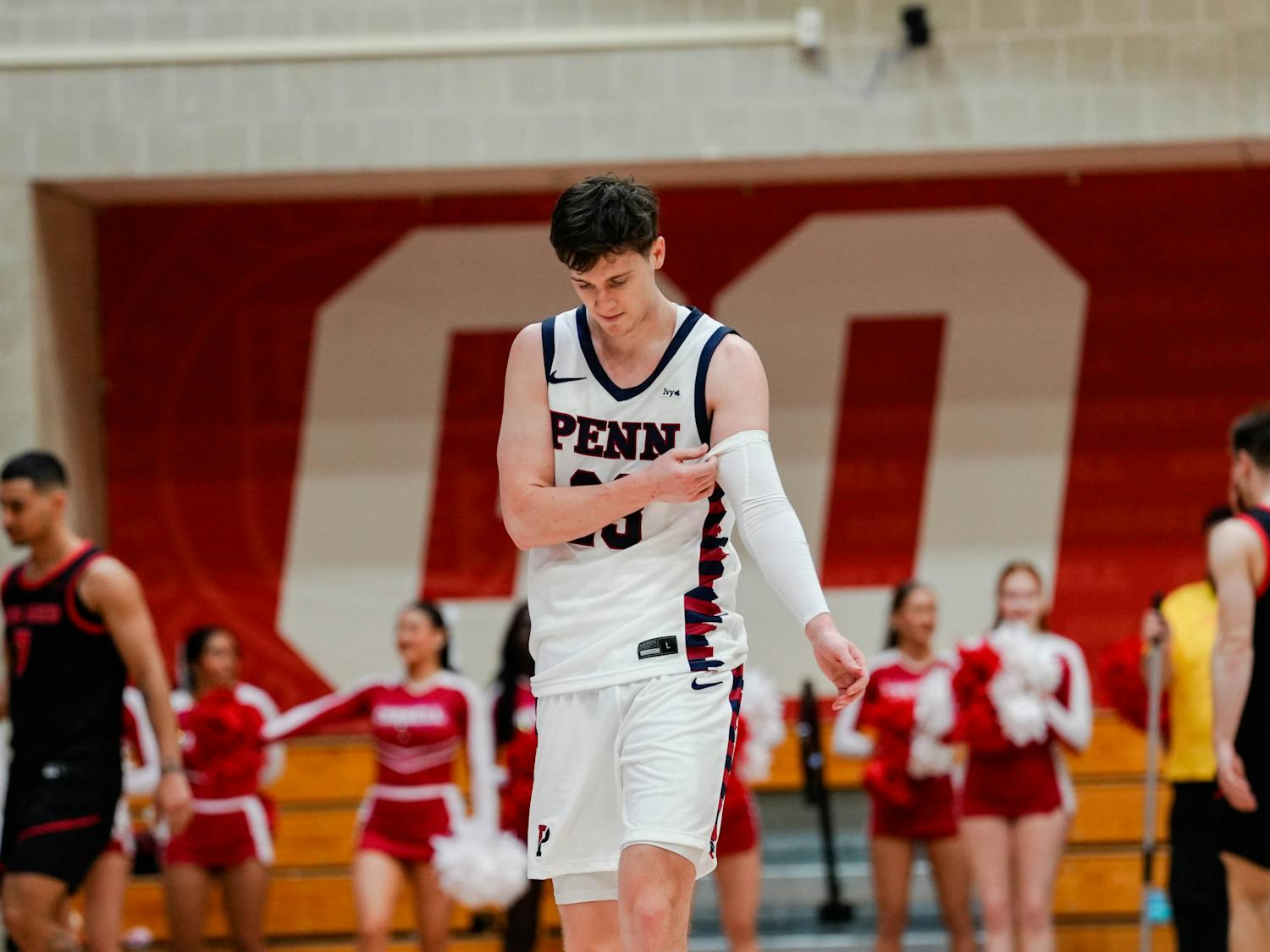Playing in its home city of Philadelphia, Penn men’s squash team could not be better defined by the city’s sports motto — trust the process. After a grueling week of matches, the team can finally celebrate as the process is now complete.
On Sunday, Penn men’s squash won its first ever collegiate squash national team championship. The championship event, called the Potter Cup, featured the top eight teams in the nation facing off in the “A” division at the Arlen Specter U.S. Squash Center in Philadelphia.
In the bracket style tournament, No. 3 Penn (13-2, 5-1 Ivy) first drew No. 6 Columbia (8-8, 2-4). The matchup would prove to be the first test for a team hoping to live up to its full potential. Indeed, the Quakers answered the call and triumphed over the Lions by a final score of 7-1. Freshman Salman Khalil, junior Abdelrahman Dweek, and freshman Varun Chitturi all earned impressive straight game sweeps.
While any win is important, this team’s season was defined by what it was able to do over the course of the final two days of matches. The Red and Blue looked to flip the script against the only two teams that were able to defeat them in the regular season — No 2. Princeton (10-3, 5-1) and No 1. Trinity (19-1).
The Tigers were a familiar foe for the Quakers, and on paper the teams appeared to be evenly matched. With every match proving to be essential to the outcome, the margin of error for the Red and Blue was slim. Ultimately, the experience of the team’s seniors along with the electrifying talent of the freshmen helped the Quakers down Princeton by a close final score of 5-4.
Strong performances included those from senior Nick Spizzirri and freshman Salman Khalil. Playing out of the first position, Spizzirri dropped his first set to Princeton’s Karim Elbarbary by a score of 11-8. However, the rest of the match was a different story as Spizzirri thoroughly dominated, winning the next three games by a score of 11-3, 11-8, and 11-6 respectively. Likewise, Khalil dropped his first game to Princeton’s Hollis Robertson, before emerging victorious in the next three games by a score of 11-1, 12-10, and 11-6 respectively.
“I wanted to be a part of the first freshman class to win a national championship in the program’s history,” Khalil said. “The first couple of weeks here, to see how much effort the team put into winning a national championship, I think it made me realize how close we were. They were willing to do whatever it takes to make this dream come true.”
Notably, coach Gilly Lane pointed out a pivotal aspect of college squash that his team noticed this season. Often, there are factors beyond the performance on the court that can play an integral role in the outcome of matches.
RELATED:
Penn women's squash falls short of dethroning Trinity
Penn men's squash secures piece of Ivy League title with win over Yale
“A big thing we saw this year in college squash was that home court played a massive advantage,” Lane said. “This year, amongst the top five teams in the country, there was only one away win. Playing the national championships at a neutral venue, we really felt like we had a really good chance to avenge those losses [to Princeton and Trinity].”
On the final day of matches, Penn sought revenge against the team that took it out in last year’s Potter Cup semifinals — Trinity. Playing out of the fourth position, junior Nathan Kueh was able to control his match against Trinity’s Abdelrahman Nassar with skillful returns and swift movement to the ball. Kueh wound up winning his match by the final scores of 12-10, 11-3, and 11-8 respectively. As the Quakers jumped out to an early lead of 4-1, it was apparent that this was a team of destiny.
Needing only one more match win to secure the national title, it came down to sophomore Omar Hafez, last year’s Ivy League Rookie of the Year. Playing out of the third position, Hafez faced Trinity’s Joachim Chuah up 2-1. After finishing off Chuah with the last point, the emotions finally overflowed from a team that had only previously known the feeling of disappointment. Tears, shouts of joy, and fist pumps of victory flooded the court for a jubilant Penn squad. The Quakers conquered the Bantams by a final score of 7-1.
“It’s a special group of student athletes that love each other and worked towards a common goal. They used last year’s defeat in the [semifinals] as motivation to work even harder,” Lane said. “They love playing for each other and they love playing for Penn. We have talented players in our team, but they have huge hearts.”
It goes without saying that any sport requires hours of dedication, sacrifice, and commitment to a craft. Hard work, as the saying goes, usually pays off in the end. However, this was not always a reality for the Penn team that had come so close on so many different occasions, but always missed out on championship hardware.
“We had players that went through the heartache … We had heartbreak against Harvard with Omar [Hafez] losing a tight one in the regular season. A heartbreaker against Trinity in the semifinal [last year],” Lane said. “It felt like we had built up those scars and calluses. You learn more from losing, and we have lost in big moments. There was something about this weekend where the guys just said there was no chance [that] we were losing. And they did it.”
After falling short so many times, Lane believes that it was through this disappointment that the Quakers reached their greatest potential.
“They went in it as brothers and as family, and it was amazing to see. Sometimes you need a couple of losses to push you further and I think that’s what happened,” Lane said. “The belief from this team was on another level. It means so much to so many people in our community, and I can’t thank our alumni, our squash board, and just everyone at Penn Athletics [enough].”
With a title years in the making, this team had all the pieces to make their dreams a reality. Unlike years in the past, something about this team felt different. They were not afraid of their history; rather, they were willing to face it. As a result, the Red and Blue can now proudly call themselves national champions.









